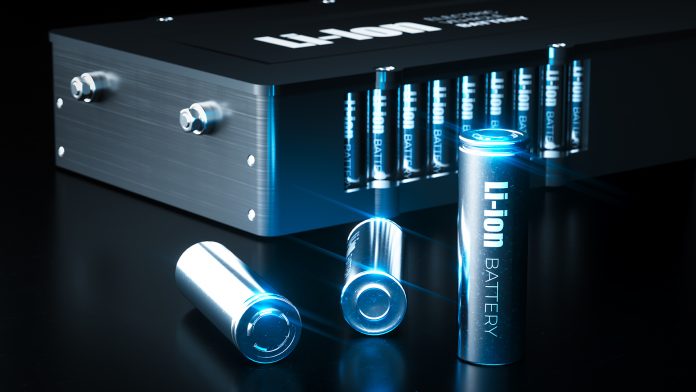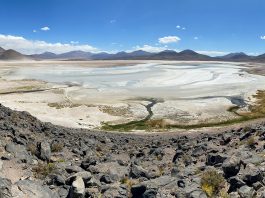Anand Sheth, Founding Chairman of the International Lithium Association, discusses the organisation’s recent activities and future plans on its mission to accelerate the global lithium supply chain.
The lithium-ion battery that powers electric vehicles (EVs) is at the heart of the energy transition. Consequently, demand for lithium is forecast to increase by almost five times in the period to 2040, according to market analyst Wood Mackenzie. With this said, supporting the growth of the global lithium supply chain is more important than ever.
The International Lithium Association (ILiA) is the industry association representing the global voice of lithium. ILiA encourages and supports its members to bring sustainable and responsibly produced primary and secondary lithium to the market, as well as advocating for a competitive and appropriate legislative and regulatory environment.
To find out more about ILiA’s work in supporting the growth of the global lithium market, The Innovation Platform caught up with the organisation’s Founding Chairman, Anand Sheth.
What have the last 12 months looked like for the International Lithium Association?
2022 was an exciting and busy year for ILiA. We grew our membership from 16 to more than 50 members, taking our representation of the market from 70% to 85%. We welcomed members from across the global lithium supply chain, including new mining projects, chemical specialists, refiners, engineers, capital markets, and specialist news outlets. Our members come from 20 countries and represent the entire lithium value chain. ILiA is run by and for its members and we are fortunate to have an involved and highly professional Executive Committee.
ILiA now has two subcommittees: one for sustainability and another for health and safety. The Sustainable Lithium Subcommittee is involved in creating product environmental footprint category rules for lithium life cycle assessments (LCAs), while the Health & Safety Subcommittee is undertaking a lithium Risk Management Option Analysis (RMOA). Both of these projects have huge implications for the global lithium industry. ILiA welcomes participation from both members and non-members in the working groups that support each project (to register your interest, please contact info@lithium.org).
We hold regular webinars and workshops on pertinent issues in the lithium industry. Our partners Wood Mackenzie and Shanghai Metals Market (SMM) provide members with exclusive quarterly webinars on the lithium market, while TDI Sustainability delivers workshops that focus on sustainability, traceability, and responsible mining standards.
In the advocacy sphere, we have been working alongside other commodity associations to express our concerns regarding the European Union’s proposed re-classification of lithium salts – an act which could have ramifications around the world, not only in terms of classification, labelling and packaging (CLP) but also in the social acceptability of lithium activities in general. While ILiA does not question the need for hazardous substances to be regulated proportionally or the precautionary principle, we believe strongly that substance classification must be based on clear, compelling and comprehensive scientific evidence. This is especially true for a substance of essential importance, where an incorrect interpretation would have significant long-term and wide-ranging impacts.
There was also time for members to get to know each other, make valuable connections, and have fun at our networking events. In 2022, as international travel slowly returned to normal, we held networking events in the United States and the United Kingdom. This year, we hosted a networking event in Perth, Western Australia, for over 200 delegates. We will also hold our annual member’s meeting in June in Las Vegas in the US.
How have recent societal events, such as the global energy crisis, impacted the direction of you work?
ILiA is a non-political global industry association, and we serve our members across the globe in equal measure. However, as an observer of global affairs, there’s little doubt that the global energy crisis and the corresponding spike in energy prices have added to the public’s awareness of renewable energy and a political urgency to transition to net zero.
The US Government has created policy incentives through the Inflation Reduction Act (2022), with generous grants and tax incentives for energy and climate change measures. For example, in January the U.S. Department of Energy announced a $700m loan for a lithium mine in Nevada. More recently, the European Union announced its own Net-Zero Industry Act (2023) which includes initiatives to streamline the regulatory environment for clean energy investments.
Geopolitical priorities are always shifting and, currently in the United States and Europe, there appears to be a trend for onshoring the global lithium supply chains as far as possible.
What does 2023 look like for ILiA? What are your main priorities currently?
Busy! Our diary is packed with speaking engagements at the major lithium events; there are many members’ events; our website is being rebuilt; new membership applications arrive every week; and, on top of that, we see a huge thirst for lithium knowledge. We receive requests for information every day.
The first edition of the ILiA in-house lithium magazine, The Lithium Voice, was launched in April. It is available in Chinese, English and Spanish. The magazine shares the story of lithium and its many unique applications with the wider public.
What must be done to ensure that the lithium industry can keep up with demand?
Lithium is an abundant mineral – it is the 33rd most abundant element in the Earth’s crust, with an estimated 98 million tons. The key to bringing new battery-grade lithium supplies on stream is investment. ILiA’s members are working hard to deliver new projects to the market to meet the surging demand for the global lithium supply chain. Obtaining a permit takes time, even in countries with pro-mining reputations, and we are following several lithium projects that are currently held up at the approval stage.
What do you think the future holds for the wider international exploration and extraction of lithium? What can countries do to support this?
Exploration for lithium and extraction of lithium is growing rapidly with the help of increased investments. Governments around the world are developing policies that promote exploration activities and fast-track projects that are in the development stage, but more public sector support is required, particularly in countries with large and underexplored lithium potential. The promotion of public and private partnerships between countries that build on each other’s strengths is key, and we need a wider recognition of that to meet net zero.
The world needs more mining of certain key raw materials. Universities could develop the curriculums and skillsets that are required to develop lithium resources and promote research and development (R&D) in mining and technologies that improve and increase the efficiencies and rate of extraction of lithium. A new set of skills is required for the success of the complete global lithium supply chain.
Please note, this article will also appear in the fourteenth edition of our quarterly publication.









